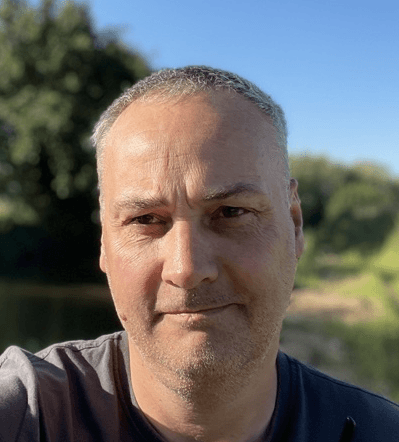
Simon Jenner
Monday 9 November 2020

Confidence is key in a Founder's Journey. Grab a pen and paper, and let's answer some questions to find that confidence and set you on the road to success.
Posted in:
No-Code
Long before you build your MVP, you should have firm confidence that your business idea is a success.
Now, that might not guarantee success, as there are some external factors that might throw you through a loop. The market is incredibly saturated with new businesses at the moment, meaning competition is higher than ever. Despite the current pandemic, the rate of new business formations grew by 47% in June 2020 - a record-breaking statistic.
However, with a bit of preparation and self-awareness, you can still offer a unique experience that gives you a long-term, competitive edge over this competition.
Here are the most important questions that startup founders should consider when first establishing their business idea and throughout their founder’s journey.
Is the problem you are solving new?
Once you have identified a problem you would like to solve, consider how quickly market trends change. A problem that is crucial in this exact moment might not even be relevant next week. Instead, focus on a problem that will persist based on where the market and digital landscape are heading.
The benefit of a new startup is that you can easily pivot your business idea quickly, especially in comparison to larger, more traditional companies, immediately establishing a competitive advantage. If you’ve not considered no-code technology for your startup, this is a wonderful time. No-code development enhances your ability to adjust rapidly, with the added convenience of lower costs.
As you establish the longevity of your problem, you should touch on a few more questions. Take the time to write down your answers to the following:
What is my business idea? Why is this idea valuable in the current market?
By writing down your answers in clear, complete sentences, you ensure you are not glazing over them as you might in your mind.
Are you solving an existing problem in an innovative way?
Perhaps you are solving a problem that existed prior to the pandemic and still exists, but other companies have forgotten about. Or maybe companies were in line to solve it prior, but the affected demographic now needs it to be solved in a different way. Although the pandemic is an incredibly dramatic reference point, this occurrence happens on large and small scales all the time with how rapidly the digital and economic worlds evolve.
Your innovative approach might be as simple as tapping into a different pricing strategy or bringing customers value in a new way, such as transitioning an on-premises software to the cloud to support our new work-from-home culture.
When answering this question, keep in mind that the purchaser is not always the end-user, and they do not necessarily share problems and experiences. An early adopter that you consult for MVP development and testing is not necessarily the same person you need to market to.
How much of a head start do you have?
Building your MVP and developing your final product can take some time, especially when using traditional development methods versus no-code. Is it possible that a big competitor could catch up to your progress if they hear of your idea and try to duplicate your product?
This is one of the many reasons we suggest you use no-code technology if it is a good fit for your startup. With programs such as our No-Code Bootcamp, you can take your startup from simply an idea all the way to market in just four weeks. This significantly closes the window that your competitors have to emulate your idea, as well as earns you the time to conduct multiple user tests and pivot your startup if necessary, perfecting your product before it is launched.
Are you bringing something unique to the market?
This is a bit of a trick question as your founder’s journey and experiences are unlike anyone else’s. This means that you already hold a unique value that can be applied to your product that your competitors cannot achieve - you simply need to find and apply it.
This value can include anyone you have networked with or resources you have gathered throughout your entire life. Don’t hesitate to contact anyone you feel might be an invaluable asset to your startup team.
Once you consider all of these questions and generate solid answers, you’ve likely found your unique selling point and identified what competitive advantages you hold. You’ve taken multiple steps towards achieving success with your startup.
Our No-Code Bootcamp will walk you through this process, as well as help you build your MVP and take your Big Idea to market. Success is waiting; let’s get started.
Ready to launch your startup idea with an MVP?
Download our step by step guide for non-technical founders to create a startup Minimum Viable Product (MVP)
Get the eBook

